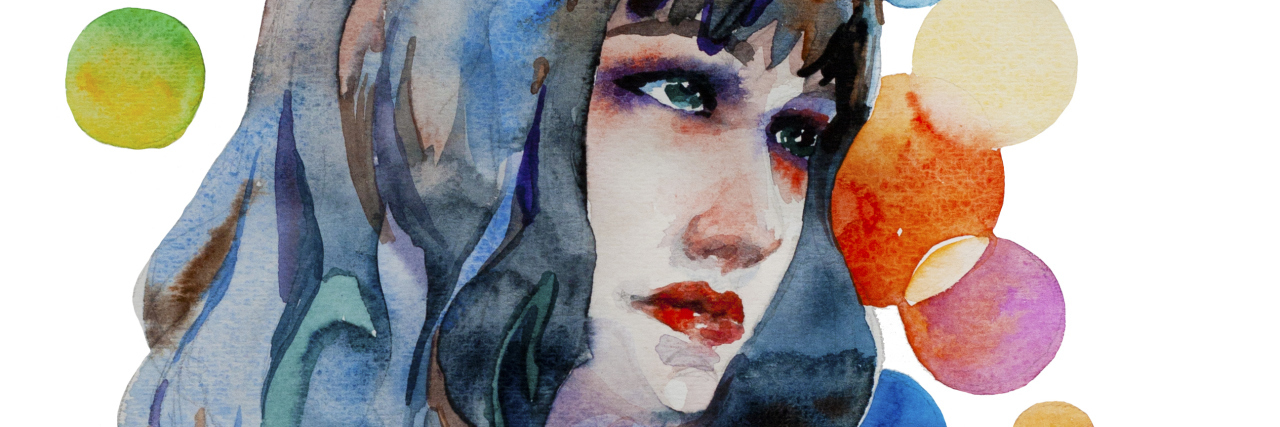I sometimes fear I am doing the wrong thing. Just recently, I saw an off-color movie that triggered within me an uncomfortable reaction. I panicked, starting to believe my mind was forever tainted, and this temporary reaction was instead a permanent fungus. Such a feeling, that would forever taint the quality of my relationships with friends, as well as my future productivity and whatever else in the land of forever-more.
This is when I turn to my friends for reassurance.
“Am I OK? Am I offending you?”
“I’m sorry, I hope I didn’t make you upset.”
“Am I bothering you?”
My chronic apologizing is not an annoying trait, rooted in insecurity — it’s something much deeper. I am apologizing for my existence, and for the inconvenience of my breathing the same air as everyone else on the planet. I am apologizing for merely being alive.
Strong words, but I think of what specifically caused me to start this habit of profuse apologizing. It is hard to recall exactly, given that this habit was strongly formed already in my early childhood, but perhaps that makes it immediately evident: My father was abusive, and I was mortally afraid of him.
He would scream, he would criticize my mother and I, and we had no escape, given that we lived in the same house together. He got in our faces and yelled about how we were wrong and… wrong. Wrong about what? Maybe I didn’t hug him when he wanted a hug? Maybe I said a word he didn’t like? He always found something to get mad over, and it was never predictable. All we could do was walk on eggshells around him, hoping not to trigger an attack. We always stumbled unexpectedly, and we could never avoid the shrillness of his voice.
Therefore, the phrase “I’m sorry” serves as a catch-all, that which can retract what has already commenced. It sweeps up any sort of offensive conversational mistakes swiftly and cleanly — as if they never occurred. If I disagree with a person, and they take it to heart, I can simply say “I’m sorry” to then take back my disagreement and now agree with the person after all. To comply with a person is to respect them and uphold the friendship to the highest degree.
At least, that is what I learned from my father. I don’t understand why though. What sort of pleasure can a person derive, seeing crying faces writhing in agony, begging for forgiveness and then not granting it to them? The thing is, my mother and I never verbally apologized. We merely stayed stone silent and still until Dad would finish yelling his head off. We would wait until he exhausted himself out with yelling, and then slink away when he moved on to something else.
We are strong women, my mother and I.
My father left my life when I was in middle school, although the damage was still done. I had developed clinical depression as a teen, and was too chronically afraid of people to really make any friendships. I remained socially isolated for high school and college, and then developed schizophrenia while in graduate school. Upon returning home, I was unable to hold down a job or return to graduate school, given that with each attempt came relapse and inpatient psychiatric hospitalizations.
My chronic mental illness caused me to never be able to forge meaningful friendships with people my age. Nor could anyone understand or identify with what I had been through regarding my schizophrenia. Instead of attracting nice people into my life romantically, I instead attracted all but criminals. On at least four separate occasions, random “nice men” approached me while I was out and about in Manhattan, perhaps at a park or at a book store. These encounters would always lead to me offering sexual favors against my will, never any sort of permission asked.
Was I sorry?
Never in any of these instances did I end up physically harmed. Instead of resisting and fighting back, I merely obliged these perverts until they went away. Then I slinked away like a ferret running into the bush. How horrified I was, when one time I received a call from the police. One man I encountered turned out to be a serial rapist who had slashed women with knives.
Yet I was neither slashed nor raped beyond patting. I suppose he wanted me to writhe in fear, that which is exciting and begging for violence. But I learned well from my father. By remaining dead like a fish, I escaped harm and survived. It was neither flight nor flight, but rather freeze.
These days, I’ve gained the ability to discern nice people from the nasty ones. In general, nice people are the types who do not require a string of “I’m sorry’s” to keep them satisfied and friendly. Friendship should be unconditional. And yet, “I’m sorry” is such an insidious habit that forces its speaker into a state of submission, of self-denial and self-sacrifice.
When said to the wrong person, “I’m sorry” becomes that of giving a sword to your enemy. But when said to the right person, it is recognized as a gesture of care and concern, and is properly reciprocated to the betterment and empowerment of both parties.
Getty Images photo via nathings

